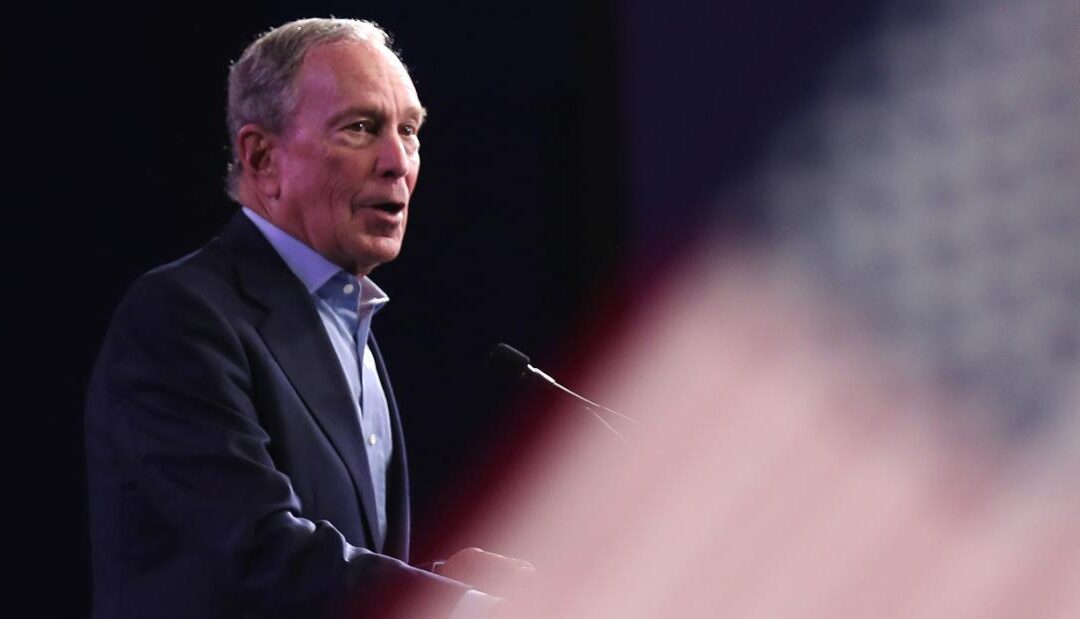Former Democratic presidential candidate Michael Bloomberg has raised over $16 million to help felons pay outstanding fines and fees to regain their voting rights in Florida.
A 2018 state constitutional amendment in Florida allows for felons who have completed their sentences to regain their right to vote — so long as they’ve also paid back any outstanding fines, fees or restitution.
Bloomberg’s fundraising, in addition to $5 million from the Florida Rights Restoration Coalition, has now paid off monetary obligations for 32,000 felons in Florida just before Election Day.
Voters who were already registered to vote, Black or Latino, and had fines and fees of less than $1500 were eligible for the payback initiative.
“The right to vote is fundamental to our democracy and no American should be denied that right,” Bloomberg said via a spokesperson. “Working together with the Florida Rights Restoration Coalition, we are determined to end disenfranchisement and the discrimination that has always driven it.”
Florida voters passed a statewide constitutional amendment in 2018 that gave former felons, except those convicted of murder or felony sexual offenses, the opportunity to vote in upcoming elections.
The Republican-controlled legislature subsequently passed, and the Republican governor signed, a law that conditioned their return to the voting rolls on the payment of all fees, fines and restitution that were part of their sentence.
Subsequent court challenges upheld the power of the legislature to condition voting rights on the payment of debts by former felons.
Judge Barbara Lagoa, who is under consideration by President Trump as a possible replacement for Supreme Court justice Ruth Bader Ginsburg, cast a concurring opinion on the 11th Circuit Court of Appeals upholding the state law requiring payment of debts.
The Republican effort is expected to limit what some viewed as a political benefit to Democrats of the constitutional change, which passed by ballot initiative with 65 percent support.
A study by the University of Florida found that nearly 775,000 former felons still owed money related to their convictions and would be barred from the voting booth by the law.
The vast majority are too poor to pay their outstanding debts, according to evidence presented in court documents challenging the law.
Several philanthropic groups, including a nonprofit founded by the professional basketball player LeBron James, have since committed donations to pay the owed money.
The Bloomberg effort, which his aides said will be pooled with about $5 million already raised by the Florida Rights Restoration Coalition, is narrowly focused only on Black and Hispanic voters who are already registered to vote and whose debts are less than $1,500.
Bloomberg’s advisers identified that group as both likely to vote for Biden and more likely to vote than other groups of former felons.
“Mike wanted to get this done for two reasons,” said a Bloomberg adviser, who spoke on the condition of anonymity to discuss private conversations. “One, because it’s the right thing to do for the democracy. And two, because it immediately activates tens of thousands of voters who are predisposed to vote for Joe Biden.”
Bloomberg aides said the former New York mayor, who is worth more than $50 billion, had raised the money for this effort from others and that the sum would not count against the $100 million or more he has personally committed to spend on behalf of Biden in the state.
The Bloomberg memo pointed out that the 31,790 targeted voters, including 25,548 who are Black, are nearly equivalent to the margin by which Gov. Ron DeSantis (R) won election in 2018, and about three times as big as the margin that elected Sen. Rick Scott (R-Fla.) that same year.
It said Florida voters have largely already made up their minds about the November election, leaving “only a small margin of voters that are targets for persuasion.”
“We know to win Florida we will need to persuade, motivate and add new votes to the Biden column,” the document read. “This means we need to explore all avenues for finding the needed votes when so many votes are already determined.”
Source: The Washington Post
